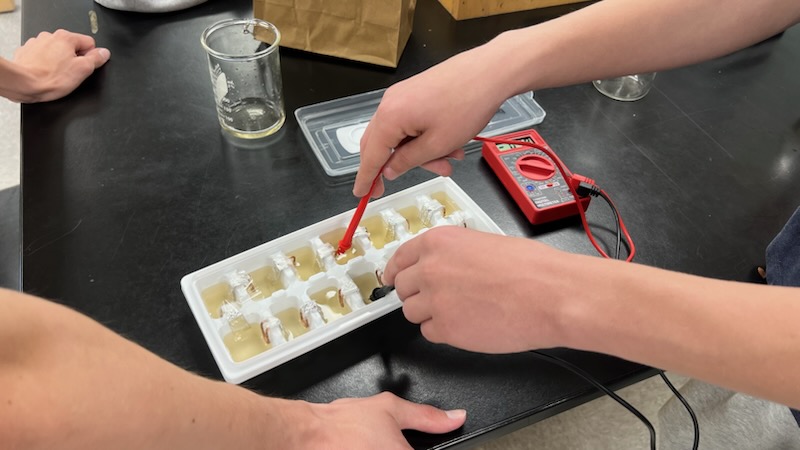For generations, depression has been viewed as an illness and an impediment to learning and development. However, many of history’s most influential thinkers and artists have suffered from this ailment, among them Abraham Lincoln, Ludwig von Beethoven, Edgar Allen Poe, Mark Twain and Vincent Van Gogh.
The reality for many is that depression has been around for a countless years, and today affects about 18.8 million Americans, according to the National Institute of Mental Health.
“We put a lot more pressure on teenagers today,” Thomas E. Granata PhD, local physiatrist, said. “Today there are more family conflicts, and better diagnosis for depression.” Granada practices as Consulting Psychological Services of Fresno.
There are three types of depression: major depression, dysthymia and bipolar depression, also known as manic depression.
“Dysthymia is found most often in adolescence,” Granata said. “If there is a family history of it there is an increased chance of depression early in life.”
Studies have shown that depression most likely results from a combination of genetic predisposition and chemical imbalances.
“The closer your connection to a depressed family member- a depressed father rather then a depressed uncle, for example- the greater an individuals likelihood of suffering depression,” John Mann, chief of the department of neuroscience at Colombia University, wrote in an Oct. 7, 2002 Newsweek article.
Depression in women occurs twice as often as it does in men. This is thought to be true because of two neurotransmitters (communication chemicals in the brain) called serotonin and nor epinephrine. The chemical levels in women tend to be lower than those in men, which give females a higher chance of suffering from depression,
“The majority of the people I have talked to about depression are girls. I seems that more girls have it than guys,” Whitney Ensom, ’05, said. “There are many things in life that can cause depression.”
In addition to Prozac and Zoloft, many drugs are on the markets that help combat depression. Prozac is by far the most well known of the anti-depression drugs, but is disliked by many because of its side-effects, which can include insomnia, weight gain, dry mouth and blurred vision.
Many people are put into a bind when having to choose either taking the risk of the medication of facing the risks of ignoring the sickness.
“My dad knows what is it like to have to take medicine everyday,” Sara Fisher, ’06, said. “Last year I was going through a really hard time and my family and I were stuck with the decision of taking medication or going to counseling.
“We decided that counseling would be a lot better because its really hard if you forget your medicine one day and there are a different side affects my parents did not want to possibly deal with.”
Although treatment can alleviate the symptoms of depression for most people, they only provide a temporary relief and do not actually cure the underlying problems.
“If people stay on medication for nine months there is a increased chance that depression will not come back,” Granata said. “Some people get off the medication and it comes back but some are fine for years and it never comes back.”
Although teenagers have classically been expected to be moody because of rapid hormonal changes, for some there is a much deeper reason for their mood swings. Many teenagers cannot be easily identified as being depressed.
“In most cases if a child is doing adequately in school, is getting decent grades but seems a little depressed, there is a great likelihood that the child won’t come to the attention of the teacher, counselor, administrator or school psychologist,” Phil Lazarus, who runs the school- psychology training program at Florida International University and is chairman of the National Association of School Psychologists emergency response team, wrote in a Oct. 7 2002 Newsweek article.
When being depressed, many experience feelings of sadness, change of appetite, different sleeping patterns, difficulty in making decisions of concentration, feeling of guilt and possibly thoughts of death or suicide.
“When people suffer from depression,” Ensom said, “they may feel like they are alone and no one really understands them.”
Ensom has benefited thorugh her father’s psychology practice.
Even though there are many doctors and treatments for depression in today’s society, there are still many people who go undiagnosed. Victims say that depression cannot be solved alone, and anyone who struggles with it needs to seek help.
“If you think you have a depression problem, don’t keep it inside,” Ensom said. “If you don’t have someone to vent to it becomes really hard. You need to ask your parents to get you professional help. They will help you carry the load. You can’t be alone.”
For more information on depression, contact the National Institute of Mental Health at www.nimh.nih.gov. or www.aacap.org.
Depression is not a respecter of persons and affects people of all ages, race and status. Depression is treatable and those affected can live out productive lives. Students can get help via the high school office. They can also call local health offices or go online at the American Academy of Child & Adolesent Psychiatry, www.aacap.org or online at the National Institute of Mental Health at www.nimh.nih.gov.”






